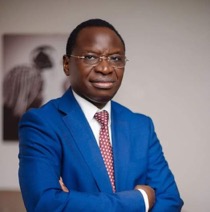
Faced with mounting economic pressures, Senegal’s Minister of Industry and Trade, Serigne Guèye Diop, has outlined an ambitious new strategy to revive the nation’s struggling economy.
Speaking at the Inspire & Connect forum in Dakar, hosted by France’s Public Investment Bank, Diop departed from conventional economic orthodoxy, urging a shift toward real-sector investment and domestic consumption as the cornerstone of recovery.
Senegal’s current economic outlook is marked by stark challenges. Public debt has ballooned to 119% of GDP—now the highest on the continent—while the International Monetary Fund has suspended financial assistance following revelations of undisclosed liabilities.
Social unrest is simmering, and public trust in state institutions is under strain.
Against this backdrop, Diop argues that traditional approaches centred on deficit reduction and inflation control are no longer sufficient.
“We need to inject resources where value is produced and stimulate households to consume them,” he said, calling for a pivot toward pragmatic, production-driven economic management.
The minister is placing his bets on high-potential sectors such as manufacturing, agribusiness, and digital services.
By focusing on local transformation of raw materials, expanding tech offerings for regional markets, and building export-oriented industrial zones, Diop envisions growth of 9–10% annually—figures he insists are realistic with decisive action.
Key to his plan is rebuilding investor confidence, particularly in light of the IMF’s withdrawal.
Diop sees untapped opportunity in African private capital and the diaspora, and is actively courting partnerships through South-South and South-North co-investment platforms.
At Inspire & Connect, he stressed the need to attract funding that combines innovation and strategic collaboration.
However, the minister acknowledged that external support alone cannot drive recovery.
“Every franc injected into consumption can become a lever,” he stated, underlining the importance of empowering small and medium-sized enterprises, streamlining public procurement, and reducing barriers to business.
In a nation long reliant on international aid, Diop’s message is clear: Senegal must reclaim control of its economic future.
The blueprint he proposes moves away from austerity and toward an economy grounded in production, investment, and local opportunity—a roadmap that now awaits implementation.



